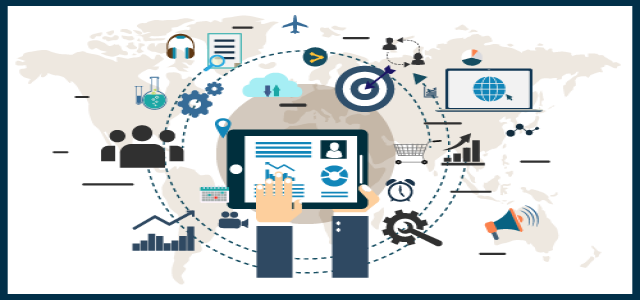
Global encryption software market is forecast to cross the USD 21 billion mark by 2026.
Rising instances of data breaches and cyberespionages coupled with intensifying concerns to safeguard critical data in various sectors, including BFSI, healthcare, defense, etc. is likely to drive global encryption software market outlook.
According to the Health Insurance Portability and Accountability Act Journal, the healthcare sector encounters the highest breach costs, accounting for an average mitigation cost of USD 6.45 million, globally.
Request for a sample copy of this research report @ https://www.decresearch.com/request-sample/detail/4484
Latin America encryption software market is touted to grow at 18% CAGR over 2020-2026 owing to supportive government initiatives to promote cybersecurity solutions aimed at curbing increased number of cyberattacks on the business-critical infrastructure.
Supportive government initiatives to combat the issue of cybercrime will support industry growth. For instance, in 2019, China SCA (State Cryptography Administration) published a draft of an encryption law, which will regulate encryption in the public and private sectors. The draft has also set guidelines on the usage of cryptography to safeguard national security.
Apart from the healthcare sector, the retail sector is also likely to observe heavy uptake of encryption solutions the sector extensively uses third-party services to support online transactions. This is resulting in increased number of data breaches, exploitation of sensitive customer information, such as bank account and credit card details. To keep pace the with constantly evolving cyber risks, cybersecurity vendors are implementing mobile, disk, and email encryption capabilities with their security suites.
Increasing dependence on electronic medium as a means of communication also comes with the risk of data breaches. The most commonly utilized modern-day form of communication is e-mail. Organizations and companies of all statures rely on e-mails for communicating confidential matters, such as contract papers, personal data, business secret passwords, etc.
To secure various aspects of email systems including content, media attachments or email access, demand for email data protection software will skyrocket. The email data protection software encrypts data at rest, as well as in transit, and also supports multi-factor authentication for added security, in order to ensure that sensitive information is always protected in line with regulatory compliance.
The government agencies in multiple countries, including Brazil, Argentina, and Mexico are introducing cybersecurity strategies to respond to a plethora of cyberattacks. For instance, the Mexican government presented the National Cyber Security Strategy in collaboration with the CICTE (Inter-American Committee against Terrorism) in 2017. The strategy adopted by the Mexican government aims at establishing best practices to fight against cybercrimes.
Growing usage of digital platforms has led to rising number of cyberattacks on critical data and secret information. According to a report published by a cybersecurity provider, Thales eSecurity, around 75% of the retailers across the U.S. have experienced data breach in 2018, much more than what is was in 2017 (52%).
Request for customization @ https://www.decresearch.com/roc/4484
In 2019, Mexican institutions, including the National Defense Ministry (Sedena), Mexico Central Bank, the House of Representatives and the Mexico Supreme Court, recorded more than 45 million attempted attacks to access databases and steal information.
With increasing uptake of security software to protect data from identity thefts, phishing and malware, email encryption software market is estimated hold a share of around 25% by 2026.
The rapidly evolving threat landscape has compelled governments across the globe to promote digital security to safeguard sensitive information and to prevent theft of general public’s confidential data.
© 2025 groundalerts.com. All Rights Reserved.